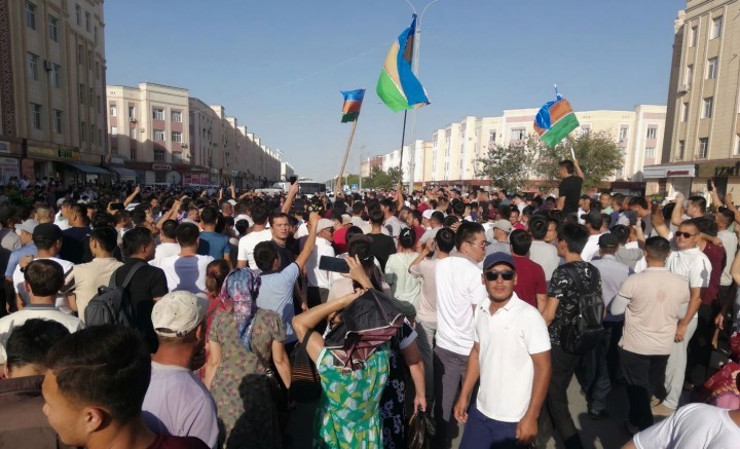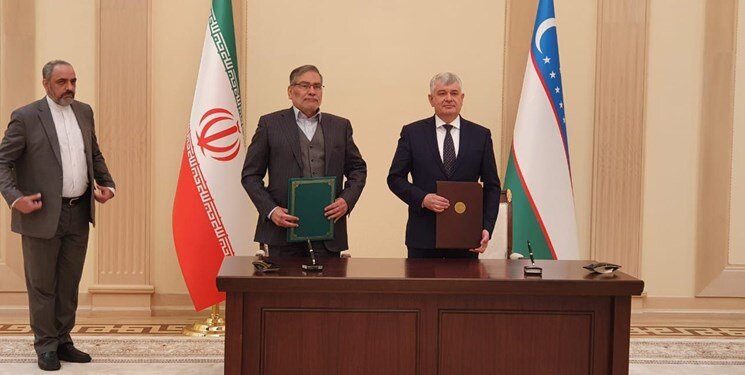To create sustainable groundwork for further expansion into Central Asia, Washington has recently placed particular emphasis on developing relations and cooperation with Uzbekistan.
One of such work areas in this country has been the active opening of “American Corners” in Uzbekistan. It is a US government-supported global network of more than 600 open-access educational centers, already implanted in more than 140 countries, seemingly dedicated to “spreading American culture and American values to every country in the world.” However, created in modern libraries, they are one of the main elements of American soft power. The US Embassy opened an “American Corner” in Qarshi in March 2021; the US Embassy plans to open at least six more such facilities throughout Uzbekistan. It has already allocated over $860,000.
Another area of US expansion in Uzbekistan is USAID’s aspirations to take control of the country’s pharmaceutical industry. To this end, USAID has opened a so-called “Quality Club” in Uzbekistan, which, it says, will promote the development of the pharmaceutical industry and local pharmaceutical manufacturers. According to a US Embassy release, the assistance will consist of discussions on updates, problems, and solutions related to regulating drugs and medical devices in Uzbekistan. US representatives present at the “Quality Club” opening discussed the current state of the Uzbek pharmaceutical industry, the contribution of local medicine producers to the common market, and achievements, obstacles, and development directions in the pharmaceutical industry. The advertising declarations of the US Embassy sounded, as always, noble, unless, of course, one keeps in mind that American charities do not do anything for nothing.
For the sake of objectivity in assessing this event, it should be recalled that there is a rigorous certification in the field of pharmaceutical products. And this, in particular, is clearly illustrated by the pharmaceutical war on vaccines against coronavirus. The United States has done quite a lot to keep the Russian Sputnik V vaccine out of that market. Therefore, it is easy to assume that the result of USAID activities will not be the promotion of Uzbek pharmaceutical products on the American and European markets, but the imposition of imports of American drugs to Uzbekistan and the capture of the Uzbek pharmaceutical market. As for the Uzbek industry, which has shown significant growth in recent years, it is unlikely to survive under pressure from USAID and Western corporations, as multinational corporations do not need competitors.
However, in addition to gaining complete control of Uzbekistan’s pharmaceutical industry, USAID has another goal. And it lies in the expansion through Uzbekistan to the entire EAEU pharmaceutical industry, given that this Central Asian state has obtained observer status in the Eurasian Union and has already begun to adapt its national standards to EAEU requirements. And, given the importance of the EAEU market, USAID expects to take appropriate positions in the EAEU market through the mediation of Uzbekistan and gain access to the latest pharmaceutical developments in the EAEU.
However, the recently intensified “outreach to Uzbekistan” is being carried out by Washington not only in these directions. For example, recently, in Uzbekistan, there have been active discussions of political and economic partnership between the two countries with the participation of Assistant Secretary of State for South and Central Asian Affairs Donald Lu. The most promising directions of further expansion of the bilateral economic partnership, including mining, chemical, agriculture, textile, and other industries, have been outlined during the meeting held on December 13 in Tashkent. The US side emphasized that in the eleven months of 2021, trade turnover between the two countries increased by 48.5% compared to the same period in 2020. In addition, the number of enterprises with American capital in Uzbekistan has doubled over the past few years. The sides expressed readiness to hold in the first half of 2022 a business forum for representatives of American and Uzbek business communities jointly with the American-Uzbekistan Chamber of Commerce (AUCC).
The US representatives also stressed the importance of strengthening security cooperation by deepening ties between defense, law enforcement, border, and customs agencies. The United States expressed gratitude for the assistance provided by Uzbekistan to humanitarian aid providers at the Termez Cargo Center and welcomed Uzbekistan’s initiative to establish a regional logistics hub in Termez under the auspices of the UN to provide urgent humanitarian aid to the people of Afghanistan.
In the conditions mentioned above, the intensification of military cooperation with Uzbekistan remains on the active agenda of Washington. Uzbekistan remains the most convenient Central Asian country to locate a US Air Force base or counterterrorism center, targeting Afghanistan. Hence, discussions of American and NATO partners with Tashkent continue. Like many post-Soviet republics, Uzbekistan has partnered with NATO for peace since the 1990s, participating in consultations, delegation exchanges, and even joint troop maneuvers on US soil. And yet, for the past 20 years, Uzbek servicemen have not helped the Pentagon in Afghanistan with weapons in their hands like Georgians, Ukrainians and others. On the contrary, closer to the finish line of the infamous US mission in Afghanistan, Tashkent began to successfully establish constructive relations with the Taliban’s “political office” and promote Uzbek-Afghan economic cooperation projects.
Nevertheless, Washington has not given up hope of strengthening the strategic partnership with Uzbekistan in military projects or facilities. The regional choices are too limited. Therefore, representatives of CENTCOM will appear more than once in Tashkent, but the influence of Americans on the situation in the hot region will steadily diminish.
Valery Kulikov, political expert, exclusively for the online magazine “New Eastern Outlook”.
Related posts:
Views: 0
 RSS Feed
RSS Feed

















 December 22nd, 2021
December 22nd, 2021  Awake Goy
Awake Goy 






 Posted in
Posted in  Tags:
Tags: 
















